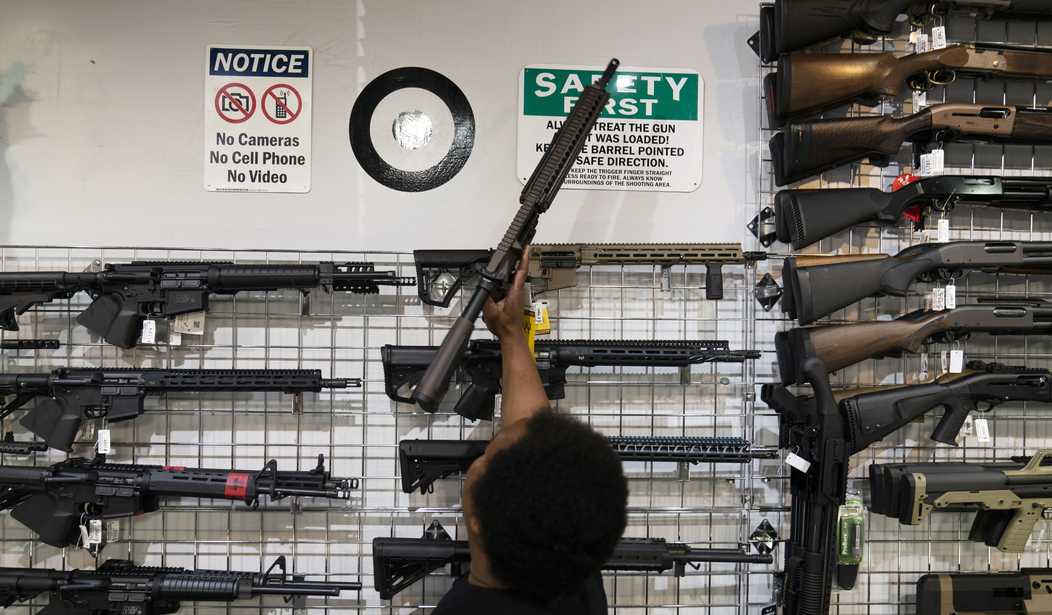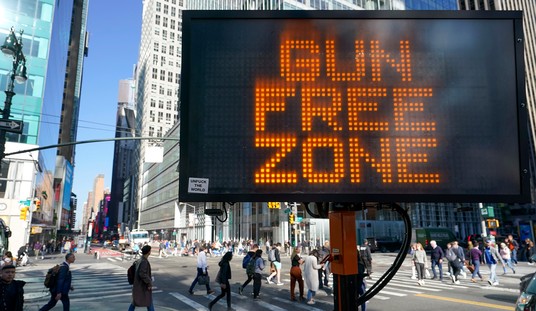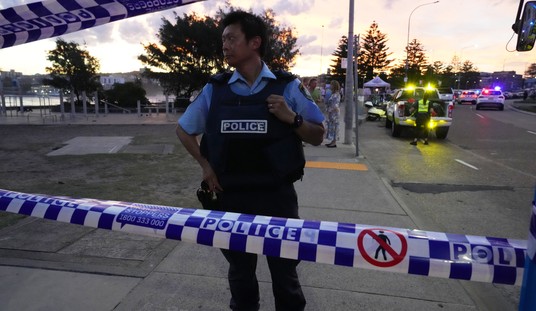Under current federal law, the FBI has three business days to conduct background checks on gun purchases. If the check is not complete after that three-day window closes, federally licensed firearms retailers can choose to proceed with the sale or not; it’s entirely up to them.
Gun control activists don’t like this system, as you can imagine, and they’ve been pushing for years now to expand that three-day time period; either removing the statutory deadline entirely or, at the very least, giving the feds ten business days or more to conduct the checks. So far, they’ve been unsuccessful in their lobbying efforts, but now they’re getting an assist from NBC News. A new piece ostensibly about the growing number of incomplete NICS seems more like a press release from the gun control lobby about the need for more “commonsense” restrictions on gun buyers.
In all, 1,002,274 background checks — or 4.2 percent — took longer than three business days in 2020 and 2021, a higher share than any other period since at least 2014, according to data compiled by NBC News. After the third business day, federal law allows dealers to sell weapons while the background check is still pending, which potentially puts weapons in the hands of people who can’t legally own a gun because of mental illness or their criminal history.
The FBI ultimately completed about one-fourth of those delayed background checks and discovered that 11,564 people were able to buy guns in 2020 and 2021 before the check showed that they should not have been allowed to do so, according to the FBI report. Agents with the Bureau of Alcohol, Tobacco, Firearms and Explosives then had to retrieve the weapons.
But that number only accounts for a fraction of the delayed background checks. The FBI never completed 734,604 checks from January 2020 through November 2021, the most recent data available, because they took longer than 88 days — after which the bureau must stop its research and purge the unfinished checks from its system.
Some dealers choose not to sell weapons without a completed check, and many states also have more stringent requirements.
Still, it’s impossible to know how many people who bought guns after an unfinished background check would have been denied had it been completed.
“Every gun sold without a completed background check poses a potential risk,” said Rob Wilcox, federal legal director for the gun control advocacy group Everytown for Gun Safety. “And these staggering numbers show that we have a serious problem.”
And of course Wilcox’s answer is that American citizens should just have to twiddle their thumbs and wait to exercise their right to keep and bear arms no matter how long it takes the federal government to complete the background check process. Wilcox and his anti-gun buddies aren’t calling for the NICS budget to be increased to hire more employees who can run the background checks, after all. They’re simply demanding the government get more time to conduct the checks, even though according to the FBI’s statistics there were nearly 750,000 checks in 2021 and 2021 that weren’t completed nearly three months after they were initiated.
I don’t think there’s any way that the Supreme Court would approve of what amounts to a three-month (or more) waiting period for some gun buyers even if that proposal were approved by Congress and signed by Joe Biden. The National Instant Check System is supposed to be “instant,” or at least close to it, and an interminable wait to exercise a fundamental right simply isn’t constitutional.
The FBI data poses another problem for gun control activists who want to implement “universal” background checks on private, person-to-person sales. The biggest reason for the increased number of delayed background checks over the past two years is the increased number of checks themselves, with the Great Gun Run of 2020 resulting in an estimated 21-million firearms sold that year and another almost 19-million sold in 2021; the two busiest years on record. If all private sales had to go through a background check, the NICS system would be even more overwhelmed than it already is.
Now, there are steps that could be taken to alleviate that problem. As I mentioned, we could increase the funding for NICS, but we could also change the way the NICS system is run entirely. A couple of years ago Open Source Defense’s Kareem Shaya put forth an interesting proposal to open the NICS system to everyone, not just FFL’s, but to do so in a way that would prevent the government from using those checks as a de facto gun registry.
- Any gun buyer can log into the NICS background check system and enter their personal information. The system gives them a check number that expires in 1 week. (For reference here is ATF Form 4473, the background check form.)
- The buyer can then buy firearms from any legal seller. They have to meet face-to-face (or ship the gun to a licensed dealer for the buyer to do the check with), and the buyer shows the check number. The seller verifies the buyer’s ID, enters the check number into the NICS system, and the system returns just one word: “approved” or “denied”. If the check is approved, they can proceed with the sale.
- The system doesn’t collect any information at all on the item(s) being sold/transferred (type, make, model, quantity, etc.) — its only job is to check on whether the buyer is legally allowed to purchase firearms. After one week, when the check number expires, the system doesn’t retain any records. (That information is already archived for 20 years on the Form 4473 for all gun shop sales.) The system collects no information about the seller, as it’s designed to work without even knowing the seller’s identity.
- Transfers between family members are exempt. Firearm loans of up to 14 days are also exempt — this is to accommodate a situation where, say, two people are on a backcountry hunting trip and one needs to lend the other a gun during the trip. They need some way to do that without committing a felony.
That wouldn’t solve all of the problems with the delays, of course, but it’s an idea that’s at least worth exploring.
The issue is that gun control activists don’t want to solve the current problem with NICS. They want to exploit it instead, and in the process turn a fundamental right into a privilege to be doled out whenever the state gets around to it.









Join the conversation as a VIP Member